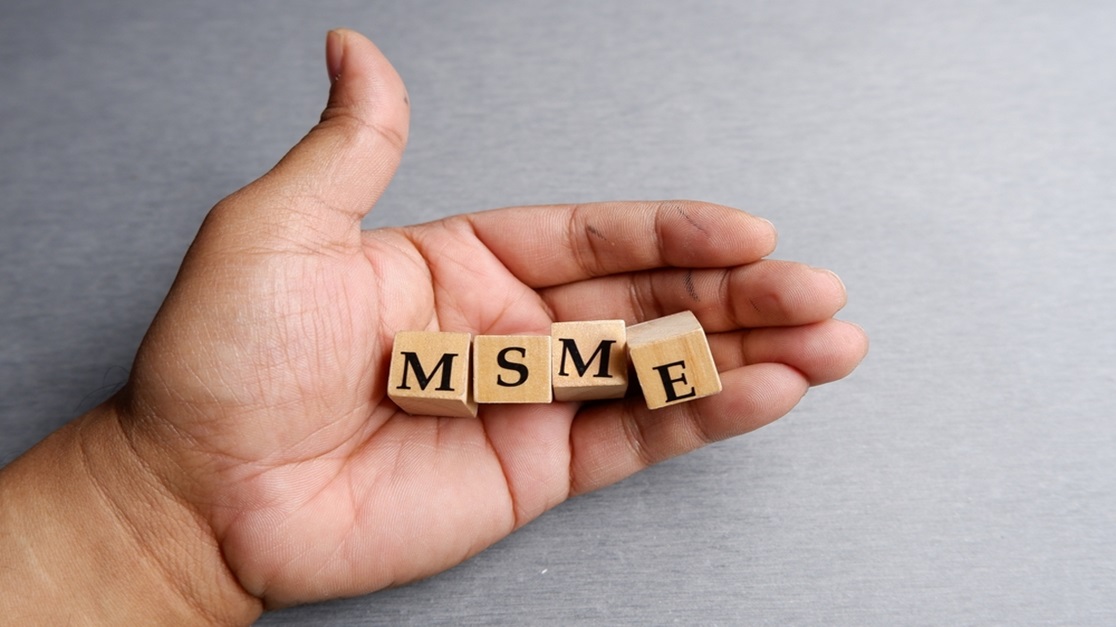Comprehensive List of Businesses That Fall Under MSME in India
August 30, 2025

India's Micro, Small, and Medium Enterprises (MSMEs) are the backbone of the country's economy. As of July 31, 2024, approximately 4.77 crore MSMEs were registered on the Udyam Registration Portal and Udyam Assist Platform. In the fiscal year 2023-24 alone, 2.49 crore MSMEs registered, contributing to 45.73% of India's total exports. This sector significantly drives employment, innovation, and economic growth.
Understanding MSME Classifications
MSMEs in India are categorised based on investment in plant and machinery or equipment and annual turnover:
- Micro Enterprises: Investment up to ₹1 crore and turnover up to ₹5 crore.
- Small Enterprises: Investment up to ₹10 crore and turnover up to ₹50 crore.
- Medium Enterprises: Investment up to ₹50 crore and turnover up to ₹250 crore.
List of Businesses Under MSME
1. Manufacturing Sector
The manufacturing sector within the MSME ecosystem is a critical driver of industrial growth and job creation. According to the Ministry of MSME, this sector contributes around 6.11% to India's GDP and 33.4% to the manufacturing output. With increasing government initiatives like the 'Make in India' campaign, MSMEs in manufacturing are thriving and diversifying into innovative product development.
- Textiles and Apparel: Handlooms, power looms, knitting, and garment manufacturing units.
- Food Processing: Agricultural product processing, dairy products, confectionery, and packaged foods.
- Leather and Leather Products: Footwear, bags, belts, and accessories manufacturing.
- Chemical Products: Small-scale production of chemicals, dyes, and paints.
- Pharmaceuticals: Medicinal products like tablets, capsules, and syrups.
- Engineering Goods: Machinery, equipment, and metal product manufacturing.
- Rubber and Plastic Products: Production of rubber items and plastic goods.
- Electrical and Electronics: Electrical appliances, components, and electronic gadgets manufacturing.
- Handicrafts and Artisan Products: Traditional and contemporary handmade products.
- Paper Products: Stationery items and packaging materials production.
- Agro-based Industries: Dairy, honey processing, pickles, and jams production.
- Furniture and Wood Products: Wooden, bamboo, and cane product manufacturing.
- Gems and Jewellery: Crafting and trading of jewellery.
- Green and Renewable Energy: Solar panel manufacturing and eco-friendly product production.
2. Service Sector
The service sector under MSMEs plays a pivotal role in fueling economic growth, contributing nearly 30% to India’s GDP. This sector has seen rapid growth due to the digital transformation and the rise of startups, creating millions of jobs in sectors like IT, logistics, and finance. Government support through digital initiatives has further empowered service-based MSMEs to expand globally.
- Information Technology Services: IT solutions providers, software development firms.
- Hospitality and Tourism: Small hotels, guest houses, and travel agencies.
- Healthcare Services: Clinics, diagnostic centers, and small hospitals.
- Educational Services: Coaching centers, vocational training institutes.
- Transportation Services: Logistics providers, courier services.
- Retail Trade: Local shops, boutiques, and small retail outlets.
- Real Estate and Renting Services: Property management and rental services.
- Consultancy Services: Business, financial, and legal consultancy firms.
- Repair and Maintenance: Workshops for vehicle and appliance repairs.
- Creative Industries: Advertising agencies, design studios, media houses.
- Financial Services: Microfinance institutions, NBFCs.
- E-commerce and Digital Services: Online retailers and delivery services.
- Event Management: Event planning and exhibition management services.
- Green and Renewable Energy Services: Solar installations, waste management services.
Businesses That Do Not Fall Under MSME
- Large-Scale Manufacturing Industries: Companies with investment and turnover beyond the MSME threshold.
- Alcohol, Tobacco, and Related Products: Production and sale of alcohol and tobacco products.
- Real Estate and Construction (Large Scale): Major construction companies and large real estate developers.
- Gambling and Betting Activities: Businesses involved in gambling, lottery, and betting.
- Financial Institutions: Banks, large insurance companies, and stockbroking firms.
- Charitable Organizations: Non-profit organizations and trusts.
- Agricultural Activities (Large Scale): Large-scale farming and plantation businesses.
- Illegal or Prohibited Activities: Any business engaged in illegal or banned activities.
Final Thoughts
The MSME sector in India covers a vast range of industries that contribute to economic development, job creation, and exports. Entrepreneurs can benefit greatly by understanding the diverse sectors classified under MSME and leveraging government schemes and financial assistance.
Take your business to the next level with Ujjivan Small Finance Bank MSME Loans. We have a host of MSME products tailored for your unique business growth needs. Additionally, we offer MSME Overdraft facilities for urgent business capital requirement. Browse through our suite of products and apply today!
Disclaimer:
The contents herein are only for informational purposes and generic in nature. The content does not amount to an offer, invitation or solicitation of any kind to buy or sell, and are not intended to create any legal rights or obligations. This information is subject to updation, completion, amendment and verification without notice. The contents herein are also subject to other product-specific terms and conditions, as well as any applicable third-party terms and conditions, for which Ujjivan Small Finance Bank assumes no responsibility or liability.
Nothing contained herein is intended to constitute financial, investment, legal, tax, or any other professional advice or opinion. Please obtain professional advice before making investment or any other decisions. Any investment decisions that may be made by the you shall be at your own sole discretion, independent analysis and evaluation of the risks involved. The use of any information set out in this document is entirely at the user’s own risk. Ujjivan Small Finance Bank Limited makes no representation or warranty, express or implied, as to the accuracy and completeness for any information herein. The Bank disclaims any and all liability for any loss or damage (direct, indirect, consequential, or otherwise) incurred by you due to use of or due to investment, product application decisions made by you on the basis of the contents herein. While the information is prepared in good faith from sources deemed reliable (including public sources), the Bank disclaims any liability with respect to accuracy of information or any error or omission or any loss or damage incurred by anyone in reliance on the contents herein, in any manner whatsoever.
To know more about Ujjivan Small Finance Bank Products Visit:"https://www.ujjivansfb.in"
All intellectual property rights, including copyrights, trademarks, and other proprietary rights, pertaining to the content and materials displayed herein, belong
to Ujjivan Small Finance Bank Limited or its licensors. Unauthorised use or misuse of any intellectual property, or other content displayed herein is strictly prohibited and the same is not intended for distribution to, or use by, any person in any jurisdiction where such distribution or use would (by reason of that person’s nationality, residence or otherwise) be contrary to law or registration or would subject Ujjivan Small Finance Bank Limited or its affiliates to any licensing or registration requirements.
FAQs
1. What is the definition of an MSME in India?
MSMEs are defined based on investment in plant and machinery or equipment and annual turnover.
2. How can a business register as an MSME?
Businesses can register on the Udyam Registration Portal using Aadhaar, PAN, and business details.
3. What are the benefits of MSME registration?
Benefits include priority sector lending, tax exemptions, subsidies, and government procurement advantages.
4. Are traders eligible for MSME registration?
Yes, retail and wholesale traders can register under MSME.
5. Can service-based businesses qualify as MSME?
Yes, service sectors like IT, healthcare, and education qualify.
6. Is MSME registration renewal required?
No, Udyam Registration is a one-time process without renewal.
7. What documents are required for MSME registration?
Aadhaar, PAN, and business details are required.
8. Is MSME registration free?
Yes, it is free of cost on the Udyam Portal.
9. Can existing businesses register as MSME?
Yes, existing businesses can register to avail benefits.
10. Are there government schemes for MSMEs?
Yes, schemes like CGTMSE, PMEGP, and MUDRA loans are available.
Latest Blogs

Banking Jargon Decoded: 15 Key Terms You Should Know
May 13, 2025
Banking feels simple on the surface; deposit money, withdraw when needed, pay bills, or transfer funds.

The ₹10 Lakh Rule for Cash Deposit Explained
August 13, 2025
Every day, millions of Indians walk into their banks to deposit cash, sometimes a few thousand rupees, sometimes several lakhs.

Missed Income or Errors? Here’s How ITR-U Can Save You from Penalties
August 13, 2025
Less than three weeks remain before the September 15 deadline to update income tax returns.

This Current Account is Designed to Empower Your Business
June 16, 2025
In the fast-paced world of business, having the right bank account can be a game-changer.

Digital Arrest: The Scam That Has Financially Affected Thousands Across India
August 13, 2025
Imagine receiving a video call from someone in uniform, flashing a government ID, and telling you that a parcel in your name has been caught carrying drugs or illegal documents.





